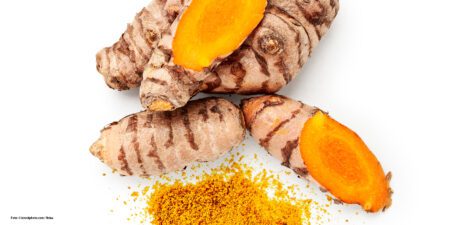In order to build collagen for tendons and cartilage optimally in the body, it is crucial to provide the right amino acids in sufficient quantities at the right time so that they are already available when the building blocks are needed. This means that we do not simply supply collagen as a whole, as the body breaks it down into its amino acid building blocks anyway.
Instead, it is important to consume these individual building blocks through food – in a balanced and scientifically coordinated mixture – so that they ultimately reach the chondrocytes and fibroblasts via the gastrointestinal tract and the blood, where they are specifically available for collagen synthesis. This corresponds to the principle of “targeted nutrition,” in which nutrients are used according to need and for specific effects.
Collagen and enzymes
At the structural level, all collagen preparations are primarily concerned with increasing the concentration of amino acids specifically required for collagen. However, it is exciting that collagen peptides also appear to have a signaling effect. Beyond the mere supply of amino acids, certain collagen peptides activate biochemical signaling pathways in chondrocytes – see the article Collagen and Enzymes by Dr. Christine Wild-Bode.
Amino acids
Insumed Bestform Vanilla and Chocolate provides an explicit amino acid profile with glycine, proline, hydroxyproline, and lysine, as well as vitamin C as an important cofactor. It thus supports the body’s needs-based supply of the central building blocks required for the formation and stabilization of tendon and cartilage structures. More information can be found HERE.
Phytogenic nutrition
A phytogenic enzyme and plant substance shake such as Phytoshake can be a useful supplement. This is based on a combination of plant protein and phytonutrient-rich ingredients such as curcumin, boswellia, and bromelain. Bromelain in particular has a proteolytic and inflammation-modulating effect, which can support the regeneration of tendon and cartilage tissue. It thus adds another aspect to the principle of targeted nutrition: modulated inflammation regulation to support healing processes. Further information can be found HEREand in the article Epigenetic efficacy of curcumin by Dr. Aranka Brockmüller and Univ.-Prof. Dr. Mehdi Shakibaei.
Autoren
ist Diplom-Sportwissenschaftler mit Professional Master’s Degree in Sports Medicine sowie postgradualen Weiterbildungen in Mind-Body-Medizin (Harvard Medical School), Psychoneuroimmunologie und Lifestyle Medicine (American College of Lifestyle Medicine); Verleger der sportärztezeitung.
is a certified sports scientist with a professional master's degree in sports medicine and postgraduate training in mind-body medicine (Harvard Medical School), psychoneuroimmunology, and lifestyle medicine (American College of Lifestyle Medicine); publisher of the sportärztezeitung.




